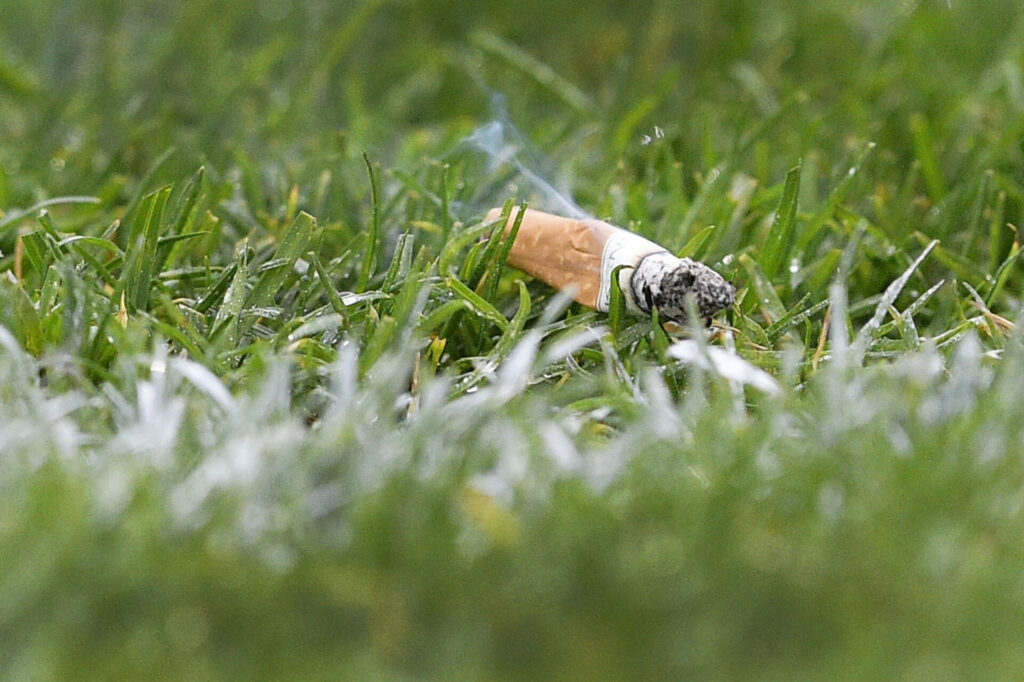Tobacco manufacturers could soon be obliged to cover the costs for the clean-up of cigarette butts that end up on Flemish streets and in the region's natural spaces.
Cigarette butts are among the most common form of litter in Flanders, estimated to account for about 15% of litter in the region. Flemish environment minister Zuhal Demir highlighted the severe consequences of this: the butts are very difficult to biodegrade and contain microplastics. "It is high time that manufacturers help pay the price for cleaning up," she stated on Tuesday.
The Flemish government gave its initial approval to a draft decree that, if implemented, will make tobacco manufacturers responsible for the clean-up costs of cigarette butts.
This is based on the principle that manufacturers of products that have a high impact on litter costs — including litter clean-up, emptying public dustbins, awareness policy and general policy costs — should also bear these costs.
Shared responsability
"The clean-up and litter cost continues to be covered by citizens and amounts to more than €150 million a year. We urgently need to shift up a gear and stop avoiding taboos," Demir said. "The polluter pays, but the manufacturer has co-responsibility."
Demir explained that the effort that has to be made by the sector depends on the extent to which the products concerned are found in litter, meaning tobacco manufacturers will be held responsible for almost €25.5 million of the total litter cost. Companies can also choose to organise litter prevention and clean-up, either collectively with other manufacturers or individually.
Related News
- 'Joining forces': Brussels Region and communes work together to improve cleanliness
- Plain-clothed 'anti-litter enforcers' descend onto Flemish streets
The same principle will apply to manufacturers of other litter-prone products, such as food packaging, chewing gum, wet wipes or balloons, which will also hold them responsible for litter clean-up costs that now fall on taxpayers.
The proposal is now before the Social and Economic Council of Flanders (SERV) and the Environmental and Nature Council of Flanders (MINA Council) for advice.

